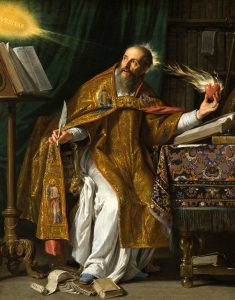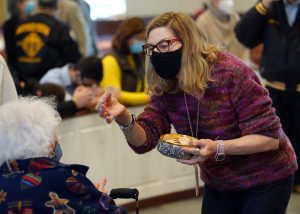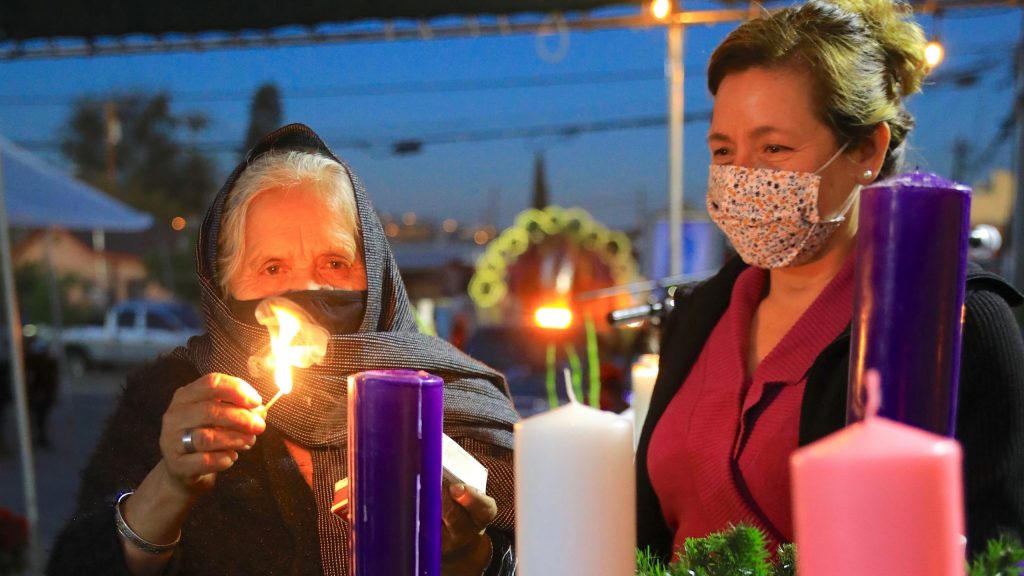Advent? You’ve got to be kidding me.
That sums up my feeling — one probably shared by some of my fellow Catholics who have been living the year 2020 like one long Lent — at the sight of the first Christmas decorations a few weeks ago.
Despite all of its difficulties, one of the graces of this year has been my renewed appreciation for the prayers of the Church. For many years now, I’ve been praying the Liturgy of the Hours, the daily cycle of prayers that priests and consecrated commit to praying every day, but which can also be prayed by laypeople. I’ve long thought that if everyone could have just a little taste of it, it would be a great help to people’s lives.
Included in the Liturgy of the Hours are two long readings in what’s known as the Office of Readings. The second one is usually an excerpt from the writings of a well-known saint or doctor of the church, and I’ve come to expect it to read like a sermon written for precisely this day.
And so it was on the last day of Ordinary Time, when it was St. Augustine’s turn to talk to me and get me ready for Advent. The man has credibility, to say the least, a hard-fought conversion that was the fruit of faith, reason, his persistent and long-suffering mother, and the Holy Spirit.

“Let us sing alleluia here on earth, while we still live in anxiety, so that we may sing it one day in heaven in full security,” the great doctor of the church wrote that day.
The word hit me: Anxiety.
Has anyone been able to escape it in this year of plagues? Among them, there’s the obvious one, COVID-19. But others come to mind, too, themselves propagated thanks to this pandemic: loneliness; depression; suicide; pornography; addictions of all sorts. It goes on and on, and we want nothing more than for it all to go away. We want better. We want “normal.”
And yet, isn’t there some sort of irrational nostalgia that goes with this kind of longing? No matter what our world looks like, there is always a cross. Sometimes, as in this year, those crosses can feel more acutely overwhelming than others.
Thankfully, St. Augustine is here to put us in our place, now, at the end of the year 2020:
“Why do we now live in anxiety? Can you expect me not to feel anxious when I read: Is not man’s life on earth a time of trial?
“Can you expect me not to feel anxious when the words still ring in my ears: Watch and pray that you will not be put to the test? Can you expect me not to feel anxious when there are so many temptations here below that prayer itself reminds us of them, when we say: Forgive us our trespasses, as we forgive those who trespass against us?
“Every day we make out petitions, every day we sin. Do you want me to feel secure when I am daily asking pardon for my sins, and requesting help in time of trial? Because of my past sins I pray: Forgive us our trespasses, as we forgive those who trespass against us, and then, because of the perils still before me, I immediately go on to add: Lead us not into temptation. How can all be well with people who are crying out with me: Deliver us from evil?”
That last thought is an insight that resonates, and, come to think of it, may make some of us even more anxious. But St. Augustine writes like a man who’s lived through a pandemic, and has found what awaits on the other side.
“And yet, brothers,” he continues, “while we are still in the midst of this evil, let us sing alleluia to the good God who delivers us from evil.”
He goes on to proclaim the truth that comes to console and encourage us all:
“God is faithful. Scripture does not say that he will not allow you to be tried, but that he will not allow you to be tried beyond your strength.
“Whatever the trial, he will see you through it safely, and so enable you to endure. You have entered upon a time of trial but you will come to no harm – God’s help will bring you through it safely. You are like a piece of pottery, shaped by instruction, fired by tribulation. When you are put into the oven therefore, keep your thoughts on the time when you will be taken out again; for God is faithful, and he will guard both your going in and your coming out.”
There’s no doubt most people have been aching for the end to the “oven” that has been 2020, eager to start a year with less suffering, and more normality. But even once vaccines start getting to circulate in the coming weeks and months, this virus isn’t going to disappear, and can we expect any politician to truly heal our country or our ailing planet? And even if those things were to be accomplished by some miracle, that is not what this year’s tribulations are meant to lead us to.

As we begin this new year in the Church, we are given these weeks to reflect on our long-term response to 2020 and its plagues.
For myself, I think especially about Jesus in the sacraments and how much I need him. I used to have the luxury of being picky about the priests I would go to for confession. Now, if it’s offered and it’s time, I’m there. (At one church, I nearly had to shout my sins because of the protocols in place.)
When it comes to the Mass, we’ve hopefully learned not to take it for granted (indeed, you may be reading this and not have it available to you at the moment). Here in New York City, I’m less afraid than I have been about losing the Eucharist again.
That is thanks in large part to Bishop Nicholas DiMarzio and the Diocese of Brooklyn’s successful lawsuit to overturn the governor’s arbitrary restrictions on religious worship before the Supreme Court.
Advent begins with the reminder to be on watch for the Lord. Much of our fear in this year is of death, is it not? And yet people have been dying of all sorts of things, not just COVID-19. It all serves to remind us that this time is to prepare us not for Dec. 25, but for our death and judgment by a merciful and just God. As St. Augustine puts it:
“O the happiness of the heavenly alleluia, sung in security, in fear of no adversity! We shall have no enemies in heaven, we shall never lose a friend. God’s praises are sung both there and here, but here they are sung by those destined to die, there, by those destined to live forever; here they are sung in hope, there, in hope’s fulfillment; here they are sung by wayfarers, there, by those living in their own country.”

This is our temporary home. That is the message of 2020. Our priorities this Advent cannot be decorating, but uniting ourselves with God. That’s the gift worth giving: our lives to God completely. Ask him to do it. Give yourself more and more every day. Offer everything to God. Ask him to eradicate anything that is not of him in your life. Do nothing that will sadden the Holy Spirit, as Scripture says.
And, even as you face all the same burdens, take St. Augustine’s advice:
“So, then, my brothers, let us sing now, not in order to enjoy a life of leisure, but in order to lighten our labors. You should sing as wayfarers do — sing, but continue your journey. Do not be lazy, but sing to make your journey more enjoyable. Sing, but keep going. What do I mean by keep going? Keep on making progress. This progress, however, must be in virtue; for there are some, the Apostle warns, whose only progress is in vice. If you make progress, you will be continuing your journey, but be sure that your progress is in virtue, true faith and right living. Sing then, but keep going.”
We are not alone. We are members of the body of Christ, with all of heaven cheering us on, where the eternal victory resides. Our song — the witness of this lived joyfully and confidently, even in times of plague — will make every difference. And only Christ makes it possible.

